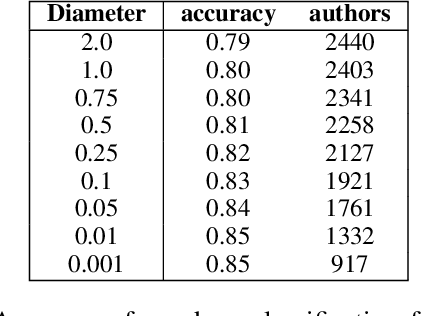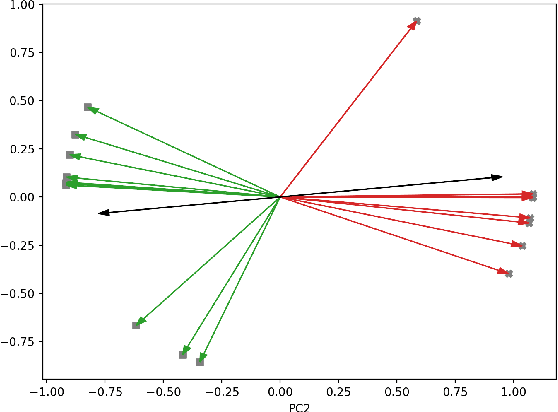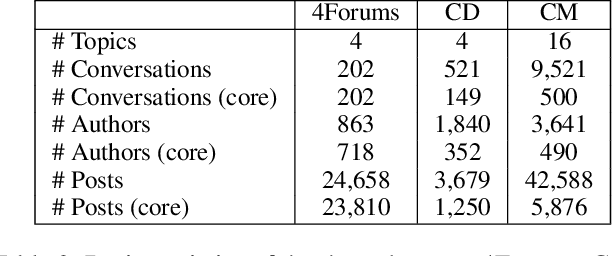Vladyslav Kozhukhov
Data Augmentation for Modeling Human Personality: The Dexter Machine
Jan 20, 2023Abstract:Modeling human personality is important for several AI challenges, from the engineering of artificial psychotherapists to the design of persona bots. However, the field of computational personality analysis heavily relies on labeled data, which may be expensive, difficult or impossible to get. This problem is amplified when dealing with rare personality types or disorders (e.g., the anti-social psychopathic personality disorder). In this context, we developed a text-based data augmentation approach for human personality (PEDANT). PEDANT doesn't rely on the common type of labeled data but on the generative pre-trained model (GPT) combined with domain expertise. Testing the methodology on three different datasets, provides results that support the quality of the generated data.
STEM: Unsupervised STructural EMbedding for Stance Detection
Dec 20, 2021



Abstract:Stance detection is an important task, supporting many downstream tasks such as discourse parsing and modeling the propagation of fake news, rumors, and science denial. In this paper, we propose a novel framework for stance detection. Our framework is unsupervised and domain-independent. Given a claim and a multi-participant discussion - we construct the interaction network from which we derive topological embedding for each speaker. These speaker embedding enjoy the following property: speakers with the same stance tend to be represented by similar vectors, while antipodal vectors represent speakers with opposing stances. These embedding are then used to divide the speakers into stance-partitions. We evaluate our method on three different datasets from different platforms. Our method outperforms or is comparable with supervised models while providing confidence levels for its output. Furthermore, we demonstrate how the structural embedding relate to the valence expressed by the speakers. Finally, we discuss some limitations inherent to the framework.
 Add to Chrome
Add to Chrome Add to Firefox
Add to Firefox Add to Edge
Add to Edge